The Best XLR Cable Options of 2023 (Mic & Line Level)
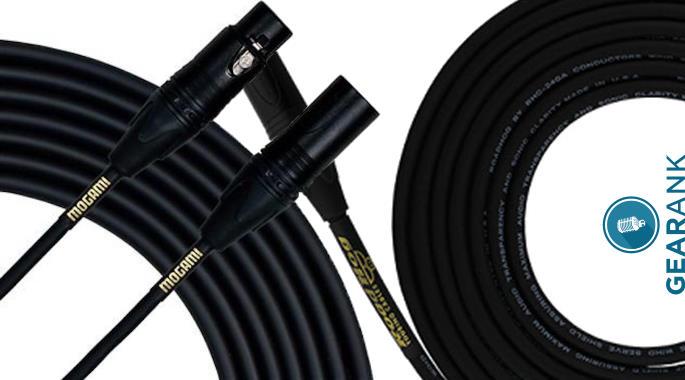
Author & Contributors
Raphael Pulgar
I've been an audio engineer for 20 years specializing in rock and metal recordings. I also play guitar and produce original music for my band and other content creators.
WBC Mogami 2549
Cons
- None at this price
Pros
- Boutique quality components and cable
- Neutrik connectors out of the box
- Very consistent across different cables
World's Best Cables, also known as WBC, makes custom cables using high quality XLR cable parts.
The Mogami 2549 features Japanese Mogami cables and German Neutrik NC3FXX-B and NC3MXX-B connectors for a top-tier cable that rivals many boutique brands.
For the price, the Mogami 2549 is assembled at a high quality and consistency. Similarly spec'ed cables from other brands can cost twice as much.
The WBC Mogami 2549 is a great boutique high quality XLR cable at a great price. Being relatively affordable makes it easier to spec your setup with the best XLR cable.
Features
- Length: 6'
- Neutrik NC3FXX-B and NC3MXX-B Connectors
- High quality Mogami cabling
- Polyethylene insulation
Pig Hog PHM20
Cons
- Not easy to wrap into a small loop
Pros
- Very thick and robust cable
- Durability designed and tested for touring
- Thickness prevents kinks and tangling
The Pig Hog PHM20 is a thick, heavy-duty mic cord built with touring in mind.
The 8mm cable jacket resists kinking and tangling, ensuring setup and teardowns are speedy and efficient.
The ruggedness can withstand a lot of abuse. The thick rubber outer coating prevents internal kinks that disrupt signal flow.
Because of the thickness of the cable, wrapping it into a small loop might be a bit difficult but that's a fair trade-off for better long term durability.
The Pig Hog PHM20 is a tour-tested cable that will stand up to the rigors of everyday use. It's one of the most reliable XLR cables for microphones today.
Features
- Length: 25’
- Available Lengths: 3' to 50'
- 8mm high quality rubber outer covering
- Heat shrink protected connectors
| Website | Source | *Rating Value |
| Youtube | ST 79 | 100/100 |
RoadHog Mic HOGM-30.K
Cons
- Weight might be a concern when transporting multiple
Pros
- Extremely heavy-duty cables
- Various lengths available (30' reviewed)
- Great sound purity
RoadHog describes this cable as a tough and road worthy, and they're not bluffing because these cables have impressive reliability.
The cable features a pure copper conductor that is wrapped in copper serve shield that covers around 95% of the wire and protected by a matte finish PVC material that's durable and flexible. The ends are terminated with Neutrik plugs to ensure longevity and consistency.
At 30', this cable is quite long for small stages, but since it does come in a variety of size configurations, you can just get one that fits your requirements.
For the money, this gets the job done remarkably well, and more importantly, it does so consistently. The balance of sound, durability and practicality proves to be a winning combination.
Heavy duty means heavy weight. Hauling multiple cables adds up to a pretty hefty weight. But this heft also assures you that you're using high quality XLR cables.
If you're looking for a durable cable that can handle the rigors of constant setup and breakdowns, then the Rapco RoadHog XLR is for you.
Features
- Length: 30’
- Available Lengths: 2' to 100'
- Pure Copper 24 Gauge Conductor
- Bare Annealed Copper Serve Shield (95% Coverage)
- Matt PVC jacket
Mogami Gold Studio Balanced XLR Cable
Cons
- Might be too bulky and valuable for road use
Pros
- Top-tier materials and jacks
- Excellent build quality
- Well shielded against external noise
- Perfect for studio use
Mogami started out in a small workshop in Tokyo, Japan. They made a name for themselves back in 1977, thanks to audiophiles who were impressed with the quality of their cables, and helped spread the word.
These days, Mogami have grown to be a worldwide provider of premium cables (with the help of Marshall Electronics), and the Gold Studio XLR is one of their top products.
As the name suggests, this is designed to be as transparent as possible for studio recording purposes.
What's impressive about the Gold Studio Balanced XLR is the cable's consistent and quiet operation. It's also built quite solidly with the best cabling and jacks. Many people I know consider it as the gold standard for microphone cables, with its zero noise operation and high signal transfer fidelity. It gets balanced signals out to where they should be, with minimal interference.
Speaking of insulation, the thickness makes the cable lean a bit on the heavy side, and that's because of its bulky jacket and shielding design. It might take more effort to get the cable rolled up. Being designed specifically for studio use, flexibility is expected to be limited since the cable has to be heavily shielded. It would also be nice if the cable were a-bit more affordable, but I guess the higher price point is expected from this particular brand.
If you have the budget and you're looking to wire up your home studio with a branded cable of reliable quality, then this will be a great, long-term investment.
Features
- Length: 15'
- Available Lengths: 2' to 50'
- 100% coverage spiral copper shield
- Neglex oxygen free copper cable.
- 4-conductor cable design
- Black metal jacks
- Gold-pin Neutrik XLR connector
| Website | Source | *Rating Value |
| Youtube | Kettner Creative | 90/100 |
Things to Consider when Buying XLR Cables
-
Some audiophiles will tell you that they can hear the difference between different leads and this is often used by some companies to sell extremely expensive leads. When it comes to Balanced XLR microphone cables the consensus of audio engineering professionals and actual measurement is clear - there isn't any audible difference between properly functioning balanced cables in normal conditions. Still, in situations where there is significant radio frequency interference, cables with less effective shielding will be more susceptible to picking up those signals. Of course a cable that's damaged can experience glitches, noise or not work at all. So the main issue to avoid problems with sound quality is to buy balanced cables that are durable, reliable and ideally have good shielding. The XLR microphone that you're using will dictate much of the overall sound quality. This is the reason why it's not wise to DIY RCA cables, TRS Cables with TRS connectors, and others as substitutes.
-
Cables that will be connected to a PA System, or a Di Box on stage have to be durable enough to handle movement and being stepped on. Wear and tear is another issue to consider for live performers. On the flip side, since you're not moving around as much in the studio, flexibility and durability may not be as important. Also consider that bringing expensive cables to tours or gigs is a risk in itself as many miscellaneous pieces of gear, like cables, get misplaced, lost or even stolen during these events. If you're going to use cables you're buying for live performances, it has to strike the right balance between value and reliability. This is where cheaper cables like Hosa XLR cables, LyxPro XLR cables and others come in.
-
Getting a cable with the right length is important, obviously you don't want anything shorter than what you actually need and remember this can include running the cables around various obstacles . But there can be some reasons for not getting a cable too much longer than you'll use. Properly operating balanced cables can operate without any audible signal loss over 100 feet and more so that isn't much of a factor. However, having surplus cable lying around in the wrong places can be messy and increase the chances that it will be damaged or get tangled up with other cables. Recording, rehearsal or performance setups can quickly become disorganized so consider what you'll do with that extra cable length. Note that we went with the cable lengths that are more popular with users, which incidentally ranges from 15 to 30 feet.
-
Core thicknesses range from 20 to 26 AWG (American Wire Gauge), with 20 being the thickest. Thicker cables allow for better signal transfer and are preferred for studio applications, while thinner ones are preferred for stage use because of their flexibility. While some audiophiles will insist Oxygen Free Copper conductors (OFC) provide the best signal transfer, the consensus from pro audio techs is that it doesn't make any difference.
-
Shielding protects your audio signal from RF interference, and there are currently three types of materials used: Aluminum laminate (foil), Tin Plated Copper and Copper. The shielding itself is connected to the third pin of the XLR, which directs the intercepted electrical interference to ground. Spiral copper shielding is preferred for stage use because of its 97% coverage and flexibility. Just note that gaps can open up when the cable is flexed too much. For this reason, some cables come with multi-spiral shielding that protects each cable core. Braided Tin Copper shielding is preferred in studio settings because of its higher 98% coverage, oxidation protection, and improved conductivity. Foil shield is commonly used on generic,cheap cables, because it provides effective interference protection without jacking up the price tag. Just note that it can be damaged when the cable is bent. For best results, some manufacturers combine different types of shielding. This is what you'd expect from quality cables.
-
In this particular aspect, the saying you get what you pay for holds true. It may seem like you're saving a few bucks by going for cheap 3-pin XLR Cables, but in the long run, you may end up spending more. Not all XLR cables have good XLR male plugs and strain relief, and you often find their weaknesses out at the worst possible times - like during a live performance! Having played a vital role in improving the design of XLR connections, Neutrik continues to be one of the most trusted brands when it comes to connectors, but they do come with a more premium price tag. Having gold plated connectors have a nice ring to it, but it's not really a better conductor, rather the gold plating just makes the pins last longer being less susceptible to oxidization (rust). In addition to microphone use, XLR cables are among the most common Speaker Connector Types.
Sound Quality
Usage: Recording versus Stage
Cable Length
Cable Core
Cable Shielding
Connector Type and Strain Relief
Best XLR Cable Selection Methodology
The first edition was published in 2016.
We looked at the most popular balanced XLR cables being sold at American online retailers and picked the ones that stood out in terms of ratings, popularity and recommendations to short-list. For this edition, we ended up with a short list of 31 cables and over 73,200 relevant review and rating sources. This information was then processed by the Gearank Algorithm and this gave us the rating scores out of 100 that we used to select only the most deserving.
Incidentally, we ended up with cables that are between 15' to 30' long, but all of the cables in this list are available in different lengths, and our rating scores reflect the combined ratings for all their length variations. For more information about our methods, see How Gearank Works.
About the Author and Contributors
Here are the key people and sources involved in this guide's production - click on linked names for information about their music industry backgrounds.
Lead Author & Researcher
Raphael Pulgar
I've been an audio engineer for 20 years specializing in rock and metal recordings. I also play guitar and produce original music for my band and other content creators.
Some of the recording gear I use in my studio includes audio interfaces like the Focusrite Scarlett 18i20, Focusrite Scarlett Solo, Samson QH4 Headphone Amp and Cloudlifter CL-1. My mics include Aston Origin, Aston Element, Shure SM57, Rode NT1, Rode PodMic and MXL V67G.
Contributors
Jason Horton: Editing and Illustrating.
Media
Main/Top Image: By Gearank.com using photographs of the Mogami Gold Studio and RoadHog Mic HOGM.
The individual product images were sourced from websites, promotional materials or supporting documentation provided by their respective manufacturers.



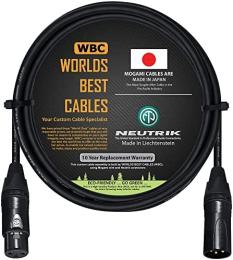
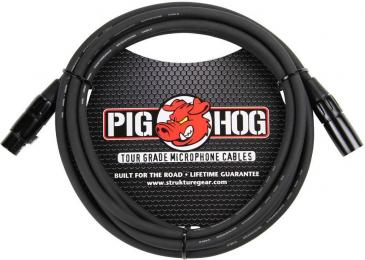
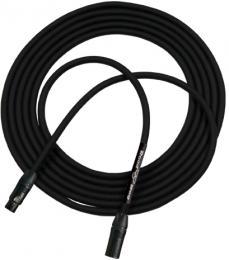
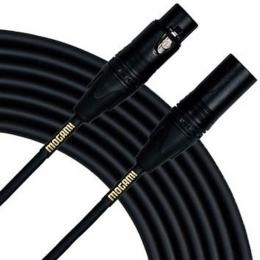
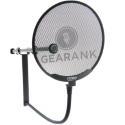
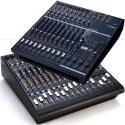
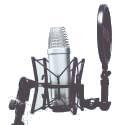
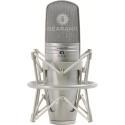
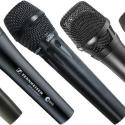
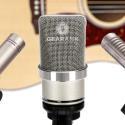
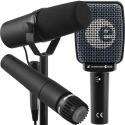
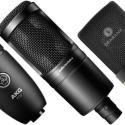
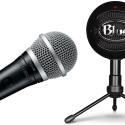
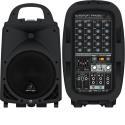
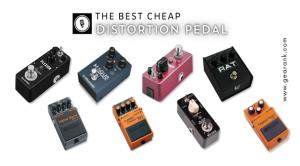
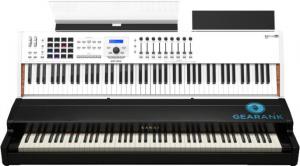
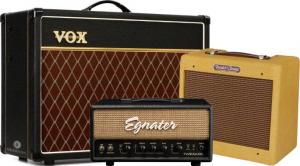
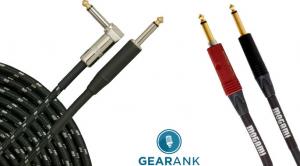
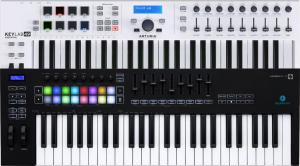
Comments
The following cables came off
Submitted by Jason Horton on
The following cables came off our recommended list when we published the November 2022 Edition:
Publication of our October
Submitted by Jason Horton on
Publication of our October 2021 Edition resulted in the following cables coming off the recommended list above:
GLS and Amazon basics are
Submitted by XLR (not verified) on
GLS and Amazon basics are literally the same cable spec and connectors and made by the same factory (Sun Rise Exact) in China.
There are only three differences:
1) They arrive with different color velcro strips (GLS White, Amazon Black)
2) GLS arrives in plastic, Amazon in cardboard
3) GLS offers various colors
Our November 2020 update
Submitted by Jason Horton on
Our November 2020 update resulted in the following cables coming off the recommended list above, but you can still read our analysis of them:
As a result of our November
Submitted by Jason Horton on
As a result of our November 2019 the following cable came off our recommended list above but you can still read our analysis of it: D'Addario Planet Waves Classic Series Balanced XLR Cable 25'.
As a result of the November
Submitted by Jason Horton on
As a result of the November 2018 update to this guide, the following cable came off the recommended list above: ProCo StageMaster.
I've had great luck with
Submitted by Bill Javens (not verified) on
I've had great luck with Better Cables silver serpent microphone cables-www.bettercables.com. I think they have even more detail than the mogami cables. They are also available on Amazon. A bit pricey but worth it IMHO :)
my favorite are gotham cables
Submitted by John Foytek (not verified) on
My favorites are gotham cables with amphenol jacks. best for noise reduction and clear signal
I've got a question. New to
Submitted by Victor (not verified) on
I've got a question. New to the pro audio scene. I'm looking for a long 50' cable going from a mixer (Tascam DP24) to a powered monitor (SRM 550 speaker). The output from the mixer is a 1/4" phono jack and the speaker has a combo XLR/Phono Jack.
So, my question is: Will I get a finer, brighter audio from an XLR to Phono cable than a straight 1/4 to 1/4 TRS cable?
What's your opinion?
The type of connector won't
Submitted by Jason Horton on
The type of audio connector won't directly influence the frequencies carried, however if you are talking about choosing between a standard RCA connector, which is unbalanced, verse a balanced XLR or TRS connector then you'll get less noise interference by going balanced - I would chose the 1/4 to 1/4" TRS because that's a balanced signal.
have you reviewed Pig Hog
Submitted by Jeemy (not verified) on
have you reviewed Pig Hog cables?
There were 2 cables removed
Submitted by Jason Horton on
There were 2 cables removed from this guide when we updated it for 2017, but you can still read our meta reviews about them at:
Have you reviewed the Reverb
Submitted by Mike Nov (not verified) on
Have you reviewed the Reverb brand cables yet? Very Curious about these.
None of Reverb.com's house
Submitted by Jason Horton on
None of Reverb.com's house branded products have been short-listed when we've been surveying product categories for our guides, as a result we have not published any Gearank scores or meta-reviews about them yet.
I'm curious did you ever
Submitted by Taylor (not verified) on
I'm curious did you ever rate Grimm TPR cable?
Grimm Audio's 'TPR assembly'
Submitted by Jason Horton on
Grimm Audio's 'TPR assembly' range isn't widely available in North America yet so we didn't rate them for this guide.
Hi Alexander, thank you very
Submitted by Dax (not verified) on
Hi Alexander, thank you very much for all your research into this. I really appreciate it. I do have one question for you, I'm looking to make my own xlr cables and I'm curious if you recommend a certain brand that I can buy the cable in 300, 500 ft spool.
Thank you!
Dax
As a Pro sound mixer, I
Submitted by paddy (not verified) on
As a Pro sound mixer, I always make my own cables.
usually a star quad cable like Mogami,
and definitely neutrik xlr's (used to be Cannon xlr's, but don't see them so much anymore).
as for anything promoted as being on Amazon...Why???
wouldn't touch that stuff/site with a ten foot barge pole..
Since we don't have data on
Submitted by Alexander Briones on
Since we don't have data on long XLR cable spools, I can't make specific recommendations. However, I can suggest that you look at the XLR spools from the companies included in this list.
Hi there. I have some
Submitted by Samuel Abraham (not verified) on
Hi there. I have some questions to ask and need some advice as well. I've been following almost all your reviews, taking down the list of equipments I need to buy for our church PA system. I've been able to clear up most doubts that I had before. I would like to ask this: I need to get an effect processor seeing that our mixing console just has the normal knobs(EQ- Treble, Alto, Tenor & Bass) for tweaking the sound on each channel. I think I need something that could really give some real effect (Reverb, Chorus, Delay & Compression) to the whole output sound of the system.
Q2: I just read your review on XLR cables. I would want to know your idea on Jack/XLR cables i.e one end jack the other XLR (I'm not sure if they called that way, but I know you to get my point) our console has 3 main XLR output for main speakers so the others I will have to connect them through a Jack (ex: monitor speakers) and the cables have to run some distance. So I would like to get some help or suggestion.
I may send in more questions going forward seeing we are wanting to revamp our PA system for better quality and sound.
Thanks for all the reviews you guys have written they've really helped me so far.
Samuel Abraham
Hello Samuel, as much as I'd
Submitted by Alexander Briones on
Hello Samuel, as much as I'd love to help you out, we don’t have data on rackmount effects yet. I'll get back to you when we can make recommendations.
As for the Jack to XLR cable question, you may want to clarify first what the other end would be, is it a 1/4" or a female XLR jack connector? In any case, many of the brands that are featured in this list should have the one that you need.